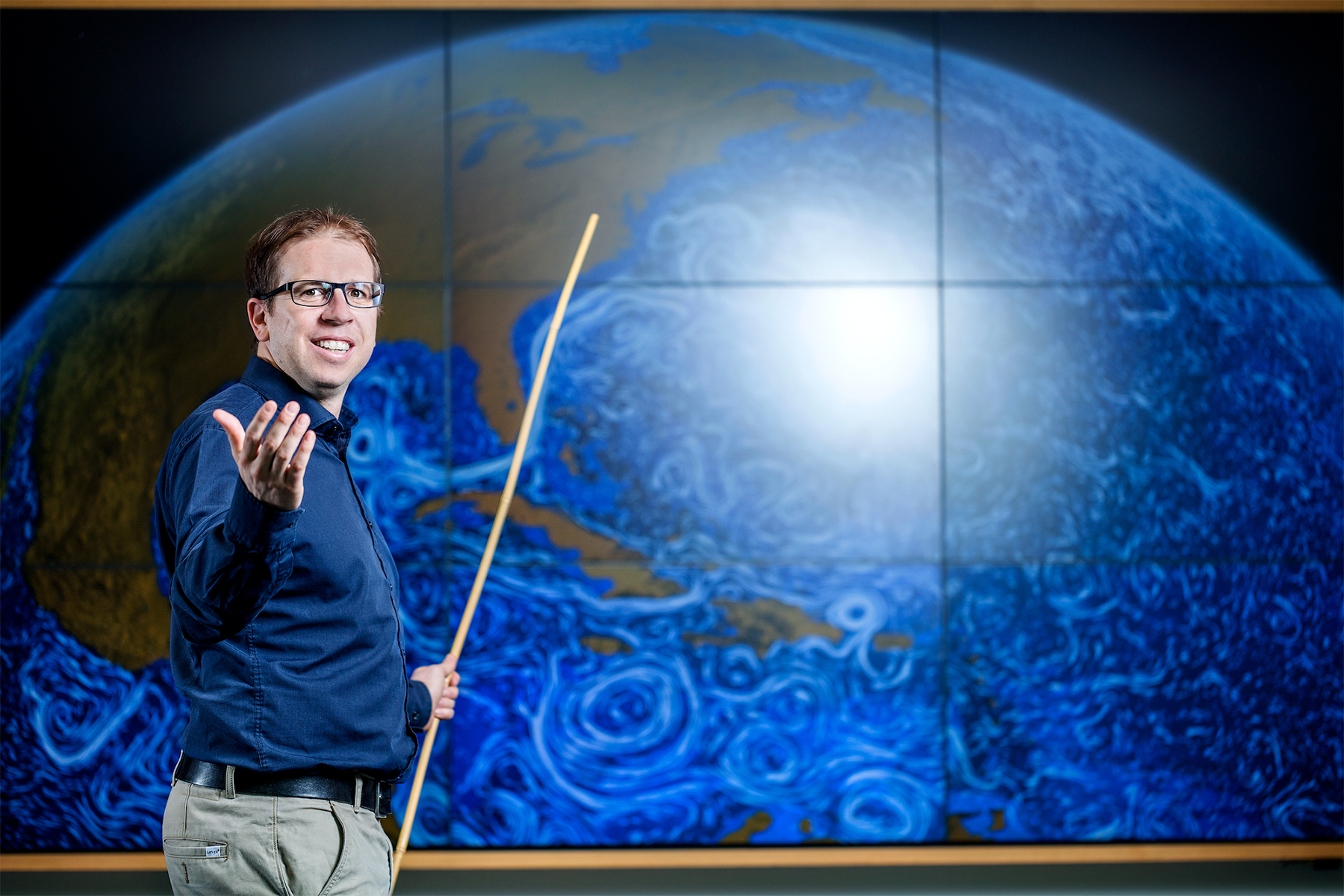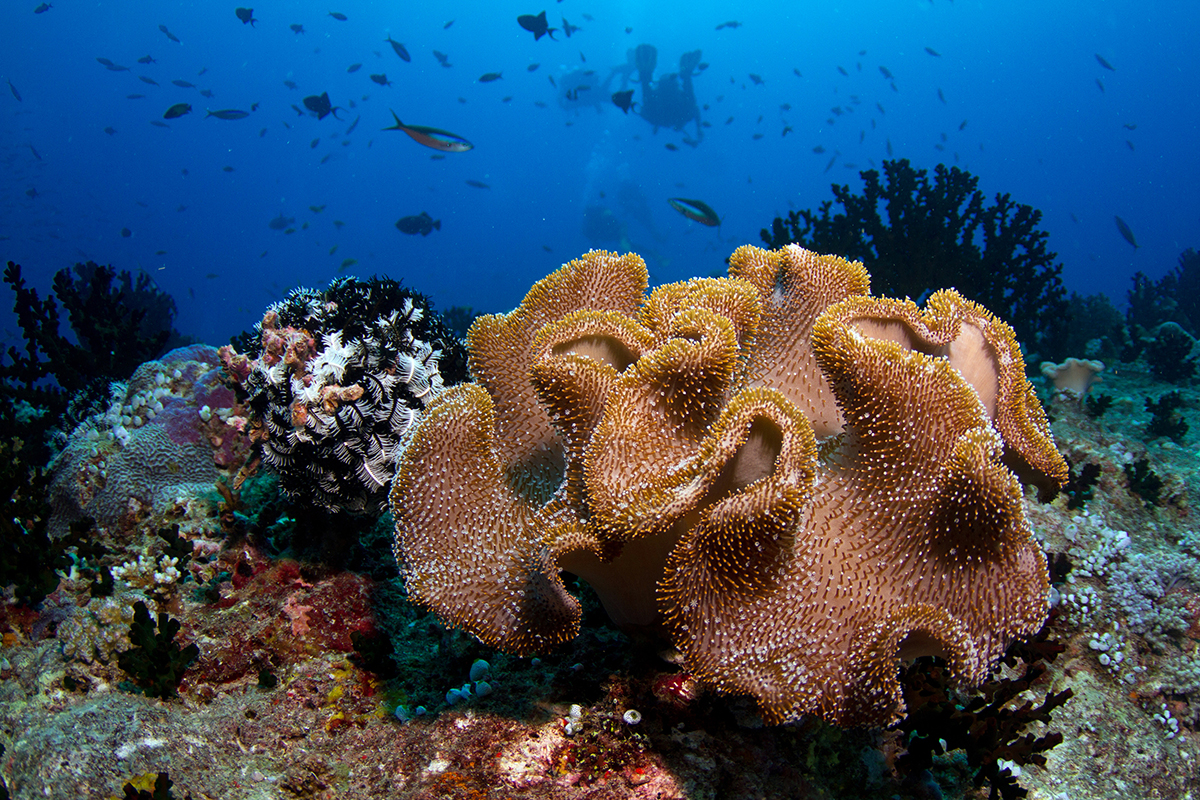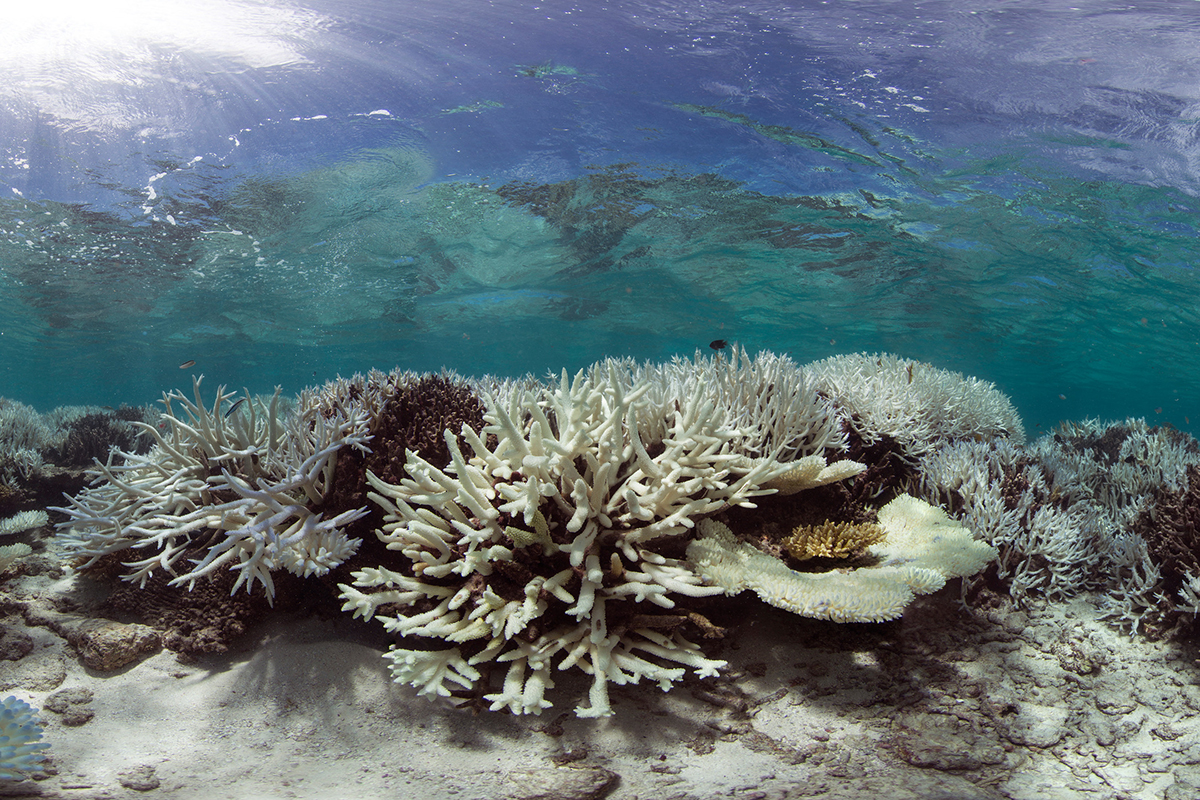“This special climate report is highly topical and necessary”
Bern physicist Thomas Frölicher played a central role in the IPCC's report on the ocean and cryosphere (ice, permafrost), which will be published on Wednesday, September 25. In an interview, he explains his role as lead author and talks about how he came to explore heat waves in the sea as a land dweller.
Thomas Frölicher, the most important facts about climate change have been known for years, why do we need any more reports at all?In my opinion, the oceans have received too little attention in the climate debate so far. It is also becoming increasingly clear that global warming is having an impact on sea-level rise and that the melting of glaciers is changing mountain areas. These consequences will become increasingly apparent in the future. I am therefore convinced that the special report that we will be presenting on September 25 is highly topical and necessary.
What exactly is this report about?It summarizes the current state of knowledge on the ocean and cryosphere, i.e. all ice-covered or permanently frozen regions of the earth, in a changing climate over around 280 pages. The report deals on the one hand with mountain areas, glaciers and polar regions and on the other hand with the sea-level rise and its significance for low-lying coastal areas and small island states. But we also look at the consequences of climate change on the oceans themselves, on their ecosystems and on the people who depend on them. In addition, the report deals with extreme events and abrupt changes in the climate system, which brings my own scientific expertise into play.

Is there a specific reason why this report is being published right now?
Representatives of the governments that make up the IPCC decided in 2016 that the IPCC should draw up three special reports in addition to the progress reports. One of them deals with the ocean and the cryosphere, both key elements in the Earth system. They are not only important for the climate, but also for the preservation of life on earth. Oceans cover more than 70 percent of the Earth’s surface. And there would be no higher life without the ocean. Marine phytoplankton is also responsible for about 50 percent of the global primary production of biomass and therefore for half of the global oxygen production on Earth. In turn, the cryosphere stores large quantities of fresh water and is indispensable for life on land.
You are Swiss, have studied in Zurich and received your doctorate in Bern. How is it that you have specialized in oceans as an inland inhabitant?
For many people in Switzerland, the ocean seems to be far away. But we are also dependent on the function it fulfils in the Earth system. Tens of millions of people worldwide depend directly on the state of the ocean. Among other things, it is responsible for the weather and climate, and it is an important resource for food and water. However, it also plays an important part in sectors such as energy, trade, transport, leisure and tourism. And its state affects the health and well-being of countless people. But in contrast to the land or the atmosphere we still know very little about the ocean. In particular, how climate change affects the biogeochemical conditions of the ocean and its ecosystems. It is precisely these unanswered questions, the unknown, that fascinate me.
Without wishing to pre-empt the report: What consequences does climate change have on fish stocks and therefore on an important livelihood for a large part of the world's population?
We know that the oceans have become much warmer and that this warming will continue to increase in the future. As a result, some fish have to find a new habitat. They migrate towards the poles and into deeper waters. This development has already been demonstrated in various marine areas.
How do you actually become the lead author of an IPCC report?
Experts from all over the world can respond to a public tender. The leadership of the IPCC Working Group II, which explores the socio-economic and natural system’s vulnerability to climate change, selects a handful of experts from this pool. The assembled team jointly identifies and writes the special report’s various chapters.
What exactly was your job as lead author?
Together with other experts, I was able to write the chapter on "Extremes, abrupt changes and managing risks". In doing so, we relied on existing knowledge and made use of studies published in scientifically peer-reviewed journals, as far as possible. As a chapter team, we then had to agree on the presentation of the compiled state of affairs and its scientific evaluation. This is an intensive process in which sometimes different views clash. However, contrary opinions, gaps in knowledge and uncertainties are clearly presented in the report. It is also checked several times using a multi-stage review procedure. The first review is carried out by external scientific experts, while the second also involves government experts. A summary is produced for policy makers in the final step with the preparation of the report. This text is finally adopted sentence by sentence by the governments in a General Assembly. This General Assembly, which I also attended, was held in Monaco last week. It was chaired by the scientists.
How were the authors of this special report selected, can all specialists participate? As a lead author one can call in "contributing authors", who support us scientifically with a certain fact. For example, we brought a coral expert on board for the subject of marine heat waves to help us summarize our knowledge of the effects of marine heat waves on warm water corals. All researchers, including those who did not work directly on the report, were then able to comment on the text during the review procedure.
Scientific publications are primarily what count for a research career. Does the work for the IPCC simply consume time which is then lacking for your own research, or does this commitment also advance your career?
That’s a good question which I will only be able to answer in full in a few years' time. Personally, however, I am of the opinion that it is not enough for researchers to limit themselves to providing data. We have to address the risks, but also the opportunities, of climate change and make them understandable to politicians. The IPCC reports play a key role here. Working on this report has also enabled me to exchange ideas with the best researchers from all over the world and work together to reach a professional consensus. These kinds of contacts are of immense importance for my future research career. The collaboration has already given rise to new ideas for joint research projects.
The next IPCC status report will be published in 2021 and 2022. Are you also involved in this Sixth Assessment Report?I'll be on board as a contributing author. Being a lead author twice within such a short time would entail a lot of work. After all, I am an assistant professor at the University of Bern and responsible for a committed and motivated research group. We have major goals and are working consistently on our projects together with a great deal of enthusiasm and energy.
Like what?We are trying to understand the processes that lead to extreme events in the ocean better with the help of climate models and observational data from satellites or drift buoys. For example, the occurrence of marine heat waves.
The public has never been as interested in climate change as it is today. Does this interest change anything about your work as a researcher?Of course, I am pleased that the public is interested in the topic and is becoming aware of the climate problem. That motivates me and my team day after day. I now also receive more frequent invitations to talk to people about this issue and to give public lectures. What makes me pessimistic, however, is the fact that we climate researchers have been pointing out for a long time that climate change will become a serious economic and social problem if we do not act immediately. Unfortunately far too little has happened though.
About the Person

Thomas Frölicher studied environmental sciences at ETH Zurich and received his doctorate in physics from the University of Bern. He then worked as a postdoc at Princeton University in the USA and at ETH Zurich for several years. He has been SNF Associate Professor in the Climate and Environmental Physics division at the University of Bern since 2017. In 2019 Frölicher was awarded the Theodor Kocher Prize of the University of Bern. He is a member of the Oeschger Centre for Climate Research and has contributed significantly as the lead author of the IPCC Special Report on the Ocean and Cryosphere in a Changing Climate.
Contact:
Prof. Dr. Thomas Frölicher
Climate and Environmental Physics (CEP)
E-Mail: froelicher@climate.unibe.ch
Bern and the IPCC
Bern climate research has a long tradition in the preparation of reports by the Intergovernmental Panel on Climate Change (IPCC). The University of Bern is probably the only institution in the world to have been involved in a leading capacity in all five reports published by the Intergovernmental Panel on Climate Change to date. The climate and environmental researchers Hans Oeschger and Uli Siegenthaler from Bern already played an important role in the first IPCC assessment report in 1990. For the 5th report, which was presented in 2013 and 2014, Thomas Stocker from Bern co-chaired the IPCC working group on the scientific and technical aspects of global warming. The Working Group I office (The Physical Science Basis), which Stocker headed, was attached to the University of Bern.
About the Author
Kaspar Meuli is a journalist and PR consultant. He is responsible for the communication at the Oeschger Centre for Climate Research.

